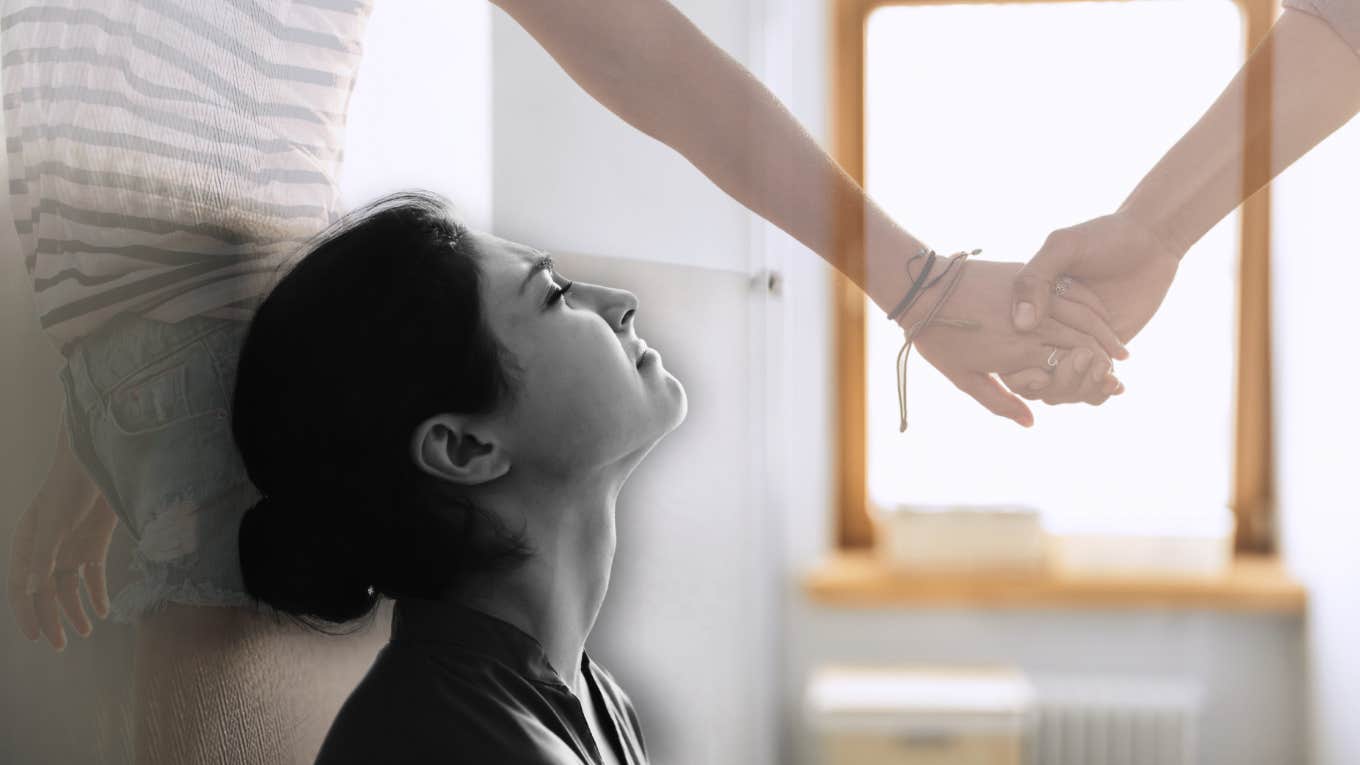8 Signs You're Addicted To The Rush Love Gives You
How to identify and heal your relationship addiction.
 fizkes, Jacob Lund | Canva
fizkes, Jacob Lund | Canva Addictions are, by nature, efforts to alleviate some sort of discomfort within us. This discomfort can range from a vague uneasiness to a full-blown panic attack with chest pains, trembling, shaking, choking, and out-of-control racing thoughts. People often engage in impulsive behaviors to ease the intensity of discomfort. However, these behaviors usually do not address the real root of the problem. Anxiety experienced in a relationship addiction can be desperately terrifying. Some addictions are more socially acceptable than others, so they may also be more difficult to identify. Relationship addictions certainly fall into this category. The following list of 'red flags waving' describes typical patterns and behaviors of relationship addiction.
Here are 8 signs you're addicted to the rush love gives you:
1. You have an unstable pattern of relationships that begins with a burst of energy and passion and the feeling that “This is the one!”
At the beginning of a relationship, the addict is “hooked” on the feeling of bliss and euphoria expecting this experience to become the norm.
2. You set aside family and friend relationships for the possibility of spending time with that special one
Some people find themselves waiting for the phone to ring or staying home hoping that a special person may decide to come by instead of engaging in ordinary social gatherings of friends and family.
3. You make efforts to avoid real or imagined abandonment
The fear of abandonment is like a hum that vibrates in every cell of the addict’s body creating a distorted lens through which rejection and desertion are seen in every direction.
4. You have obsessive thoughts that preoccupy one’s mind
These thoughts often involve jealousy or a fear of being unimportant and insignificant.
5. You make endless demands for reassurance
There is often a desperate need to be constantly relieved of anxiety by hearing words and exacting actions that soothe emotional turmoil.
6. You've aborted efforts to end an abusive relationship
Often after promises to leave have been made to oneself and others, taking action and ceasing communication with the abusive partner is undermined by a multitude of fears.
7. You feel out of control
When a person is unable to follow their wisdom and values regarding their behavior in the relationship, there is a feeling of helplessness as unconscious processes drive addictive behaviors.
8. You choose partners who need 'fixing'
Addicts are often drawn to people who become emotionally unavailable or who are demanding and critical after the honeymoon phase fades. The initial joy and exhilaration are the “high” the addict seeks, and the partner becomes the drug of choice. Like with most disorders, there is certainly a continuum of symptomatology from very mild to severe. Here are some steps for becoming “sober” in the area of relationship addictions.
Here are 8 ways to heal your relationship addiction:
1. Identify the problem
As with any addiction, a person must first acknowledge that there is a problem before the process of changing a life pattern can begin.
2. Commit to a new way of living
This needs to be an ongoing commitment, day-to-day, and sometimes (like with all addictions) moment-to-moment.
3. Get support
For moderate to severe cases professional support is recommended. For milder cases, family, friends, and support groups may suffice.
4. Load up a toolbox
Myriad treatment modalities can facilitate the journey into sobriety. Therapists have many tools from traditional Psychotherapy to Emotional Freedom Techniques, Clinical Hypnosis, Cognitive Behavioral Therapy, Trauma Release Techniques, Healing Touch, Guided Imagery, Dialectical Behavior Therapy, and many more approaches.
5. Put off long-term serious choices
If one is not in a relationship when beginning recovery, wait at least 6 months before getting involved in any romantic relationship. It is also wise to put off major job changes until emotional stability is adequate.
6. Immerse yourself in healthy practices
If you were a fish, you would only be as healthy as the water in which you swim. Many factors contribute to the health or toxicity of the environment in which we live and swim. Some of these are the food we eat, the TV shows we watch, the music we listen to, the clothes we wear, the orderliness/disorderliness of our home space, the people with whom we spend time, but MOST OF ALL, the thoughts that go on in our head.
7. Become your own expert
There is no right treatment for everyone. Many issues underlie a relationship addiction. Find the ones that move you, inspire you, and work for you.
8. Invite assistance from the unseen realm
I would invite you, even if you have no religious beliefs or spiritual practices, to simply open your heart and invite beings from beyond the veil of heaven to support you, guide you, give you strength and courage, and make themselves known to you in their way.
Virginia Felder is a marriage and family therapist who aims to help her patients get a better understanding of who they are.

